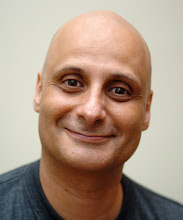In light of a variety of very judgmental comments about Whitney Houston’s death now appearing on Facebook and elsewhere, I thought I’d weigh in on the issue of addiction. Some people claim it’s a choice, others that it’s a disease.
The truth is that it’s both.
It begins as a choice, but it can very quickly become a disease. Not everyone who chooses to drink, smoke, do drugs, or engage in other addictive activities will develop the need (literally) to continue to do so. Those who do develop such a need are usually biologically predisposed towards addiction (due to biochemical imbalances in their brain and/or genetics) and most often suffering from some level of emptiness within their psyche. The addictive substance or substances they expose themselves to temporarily calm the biological aspects and provide an illusory relief of whatever mental/emotional issues are affecting the user.
In such people, a very vicious cycle soon develops. Each time they use whatever they are addicted to, receptor sites within the brain are formed which literally cry out for the substance or substances that they are linked to. The more the addictive substance is used, the more these receptor sites form, so that the brain increasingly demands more use of the substance (or activity, e.g., sex, gambling, and even running for those who are addicted to experiencing the “runner’s high”). This is why addiction treatments based on the AA model so often fail – because they do nothing to address the receptor sites.
As this cycle unfolds, the need for ever greater amounts of the addictive substance is also something that addicts typically experience, because there are now more receptor sites in the brain to satisfy. As an example, where once one or two beers each day was enough to leave someone satisfied, in alcoholics that level is nowhere near enough, and so drinking becomes heavier and the drinks themselves often change towards those with higher alcohol content. At the same time that all of this is happening, another equally insidious effect in occurring in the brain – namely a literal shutting down of the brains higher level centers that equate with choice, intelligence, and the ability to perceive and do “the right thing.” As these centers of the brain become impaired, simultaneously the “reptilian brain” that cares only about satisfying needs, grows increasingly stronger within addicts.
All of these facts have been proven for decades, as has the fact that addiction is most definitely a disease once it takes hold. As with any other disease, people can still get well, but it requires proper treatment that addresses all of the factors in one’s life that made addiction possible in the first place. Such treatments do not include judgment.
I know too many loved ones who suffer from some form of addiction. Every single one of them, at heart, is a very loving and kind person, and also very intelligent and creative. I’m convinced that they are also too sensitive to the harsh realities of this world.
When viewed from that awareness, the only appropriate response is compassion.
Subscribe to:
Post Comments (Atom)




No comments:
Post a Comment